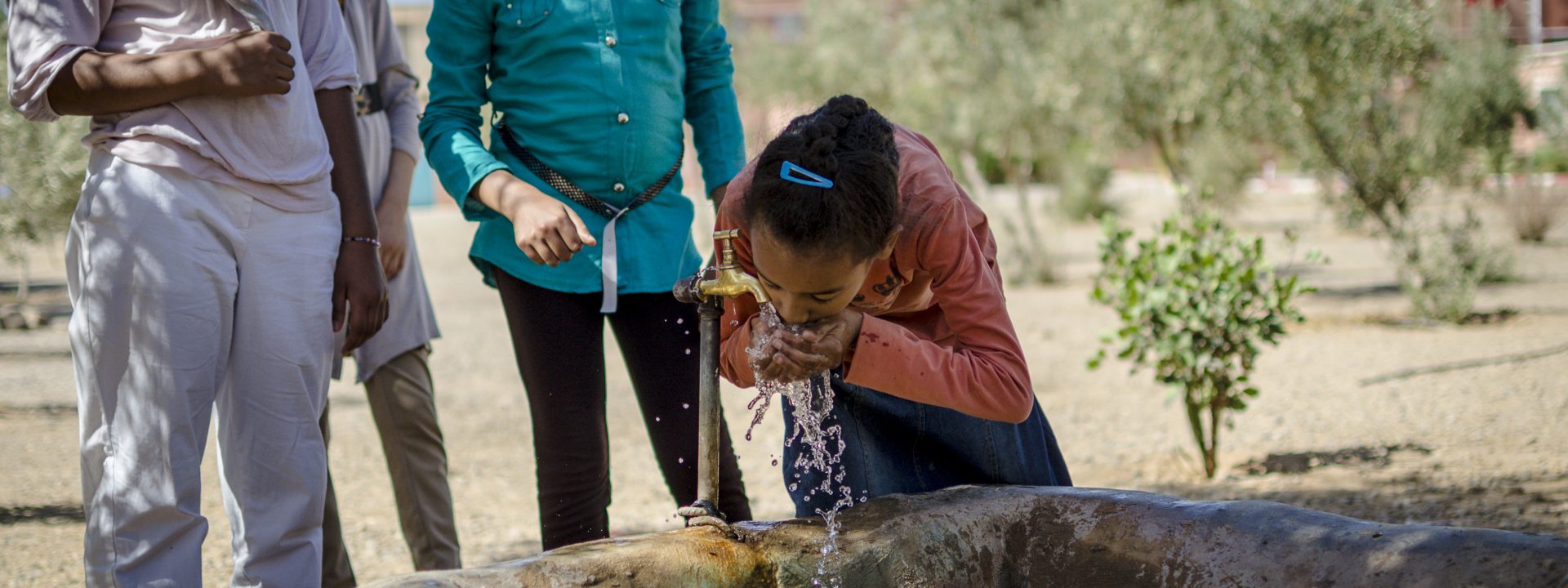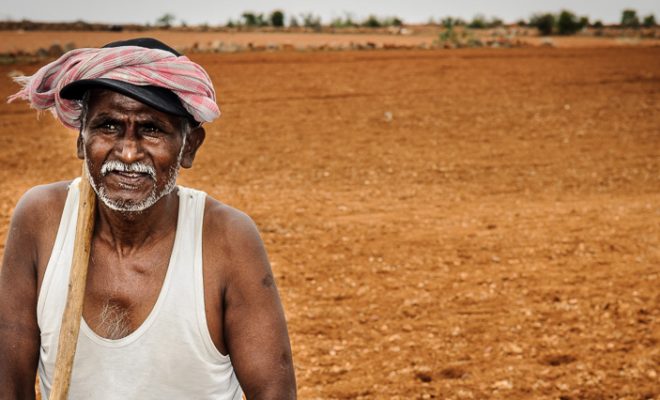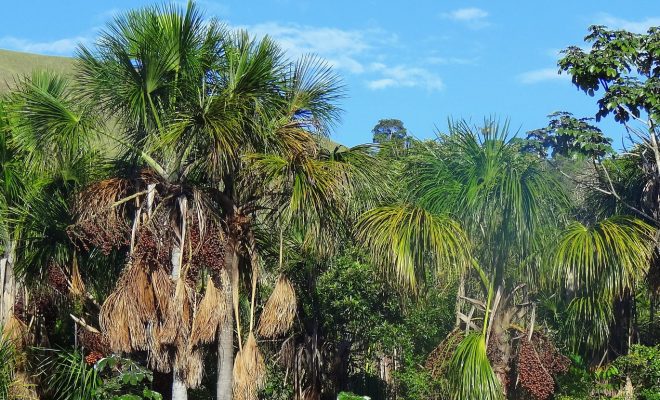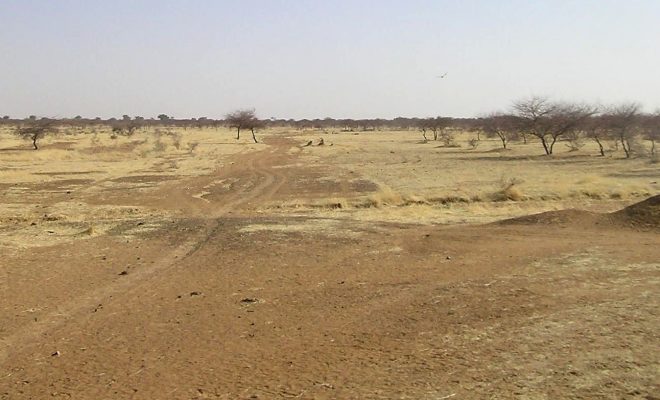At the foot of the southern slope of the Atlas, in the Skoura oasis, trees are wilting. The large green mass in the middle of the desert, which was home to more than 70,000 palm trees and thousands of fruit trees one decade ago, is lacking water. The aquifers, overexploited due to farming, do not receive as much water from the snow in the mountains, which has alarmingly decreased in the last few years.
In the 1980s, farmers in the region had to drill wells averaging eight meters to find water; now water is found at a depth of more than 40 meters, and therefore additional energy is needed to pump it. Tree roots do not reach that far and they dry out and die. Its inhabitants are of legendary austerity; they live with the bare minimum and with it they obtain the fruits of the earth that have allowed them to survive for generations. They count on their work capacity and sacrifice and above all, on their feeling of solidarity to get ahead.
This spring, the pandemic has fully hit the driving force of the Moroccan economy and one of the sustainable development hubs in the Souss Massa Draa region, where Skoura is located: the flow of tourists who once came permanently to admire the unique oasis at the gates of the desert has disappeared.
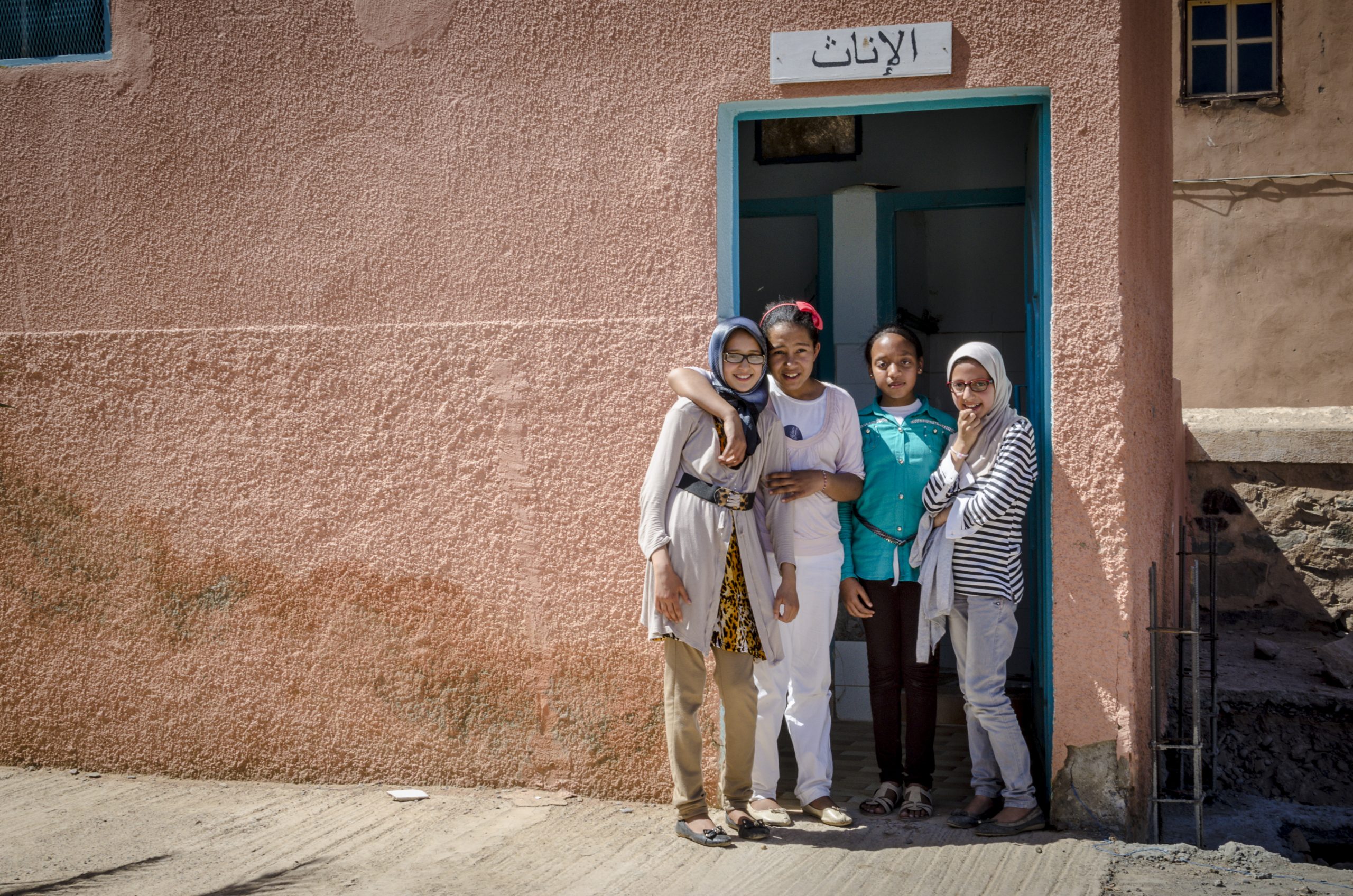
Some centers lack running water, latrines are dysfunctional and facilities in general are not adapted to the specific needs of very young or disabled boys and girls. © Carlos Garriga/We Are Foundation
Little and unhealthy water
About 100 km southeast from Skoura, the oases along the Draa River basin experience a similar situation. The course of the river, which begins in the High Atlas and flows into the Atlantic Ocean, is a chain of palm groves and orchards, which contrast with the dry, reddish mountains that surround them. This region has also been struggling for years to recharge the aquifers that feed the vegetation and agriculture that sustains the region’s economy.
In 2014, the Foundation collaborated for the first time with UNICEF in Morocco, in a project in the province of Zagora, a semi-desert area affected by another common deficiency in the poorest rural regions of the country: scarce water and sanitation facilities, and a lack of awareness and education about proper hygiene practices in schools. The high rate of water-related childhood diseases is endemic in Morocco’s poorest areas.
The project provided the supply of equipment as well as the development of the maintenance service and the consequent behavior changes related to hygiene. It benefited 32,700 people and turned students into communication agents of good hygiene practices in their families and communities; and schools, along with teachers, became promotion centers for water and sanitation services.
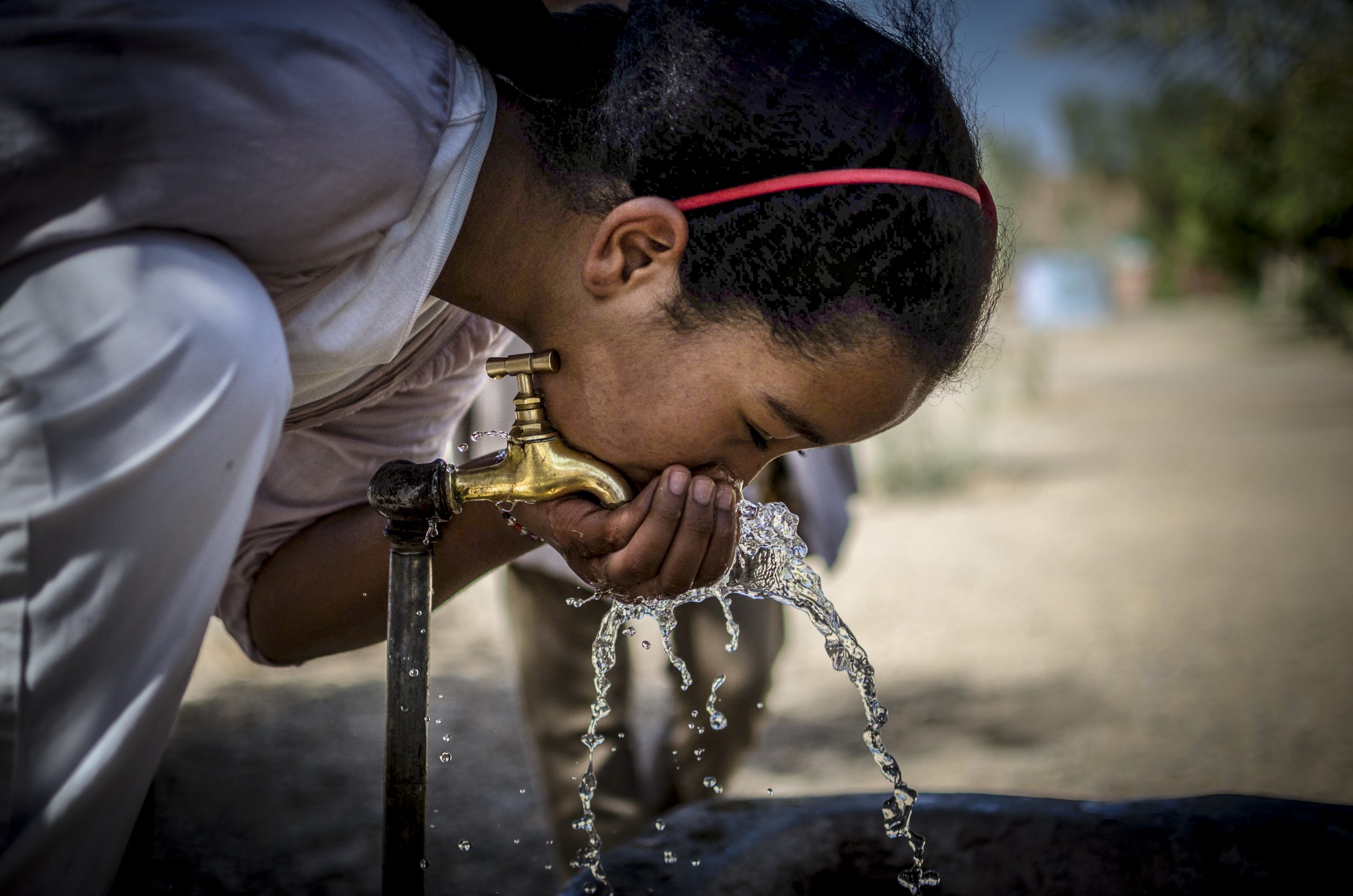
The project of the Foundationprovides an integral solution, based on the rehabilitation of the facilities, on education about hygiene and on the strengthening of teachers and families. © Carlos Garriga/ We Are Water Foundation
The additional challenge posed by the pandemic
Water and hygiene needs have greatly increased with Covid-19 in the most disadvantaged areas of Morocco. In the most vulnerable communities, handwashing is rarely put into practice due to the lack of knowledge. The rate of diarrhea, for instance, continues to be very high among younger children, representing the second highest mortality factor in the country, with a prevalence of 22% among children under the age of five. This indicator is five times higher in rural areas.
The new region of Souss Massa lies about 200 km west of Zagora. There the Foundation has started a new project with UNICEF that gives continuity to the implemented experience and intervention model, with the aim of reaching areas with the most economically disadvantaged population and where children face more difficulties related to education.
In this dry area, sanitation facilities in schools are dilapidated. Some centers lack running water, latrines are dysfunctional and facilities in general are not adapted to the specific needs of very young or disabled boys and girls. The project provides an integral solution, based on the rehabilitation of the facilities, on education about hygiene and on the strengthening of teachers and families. This communal approach is key to face the health crisis added by Covid-19. It is also key to combat gender discrimination based on awareness of menstrual hygiene among teenage girls and their environment. The creation of these capacities of local actors is essential to ensure the sustainability of the project and explains the success of the implemented model.
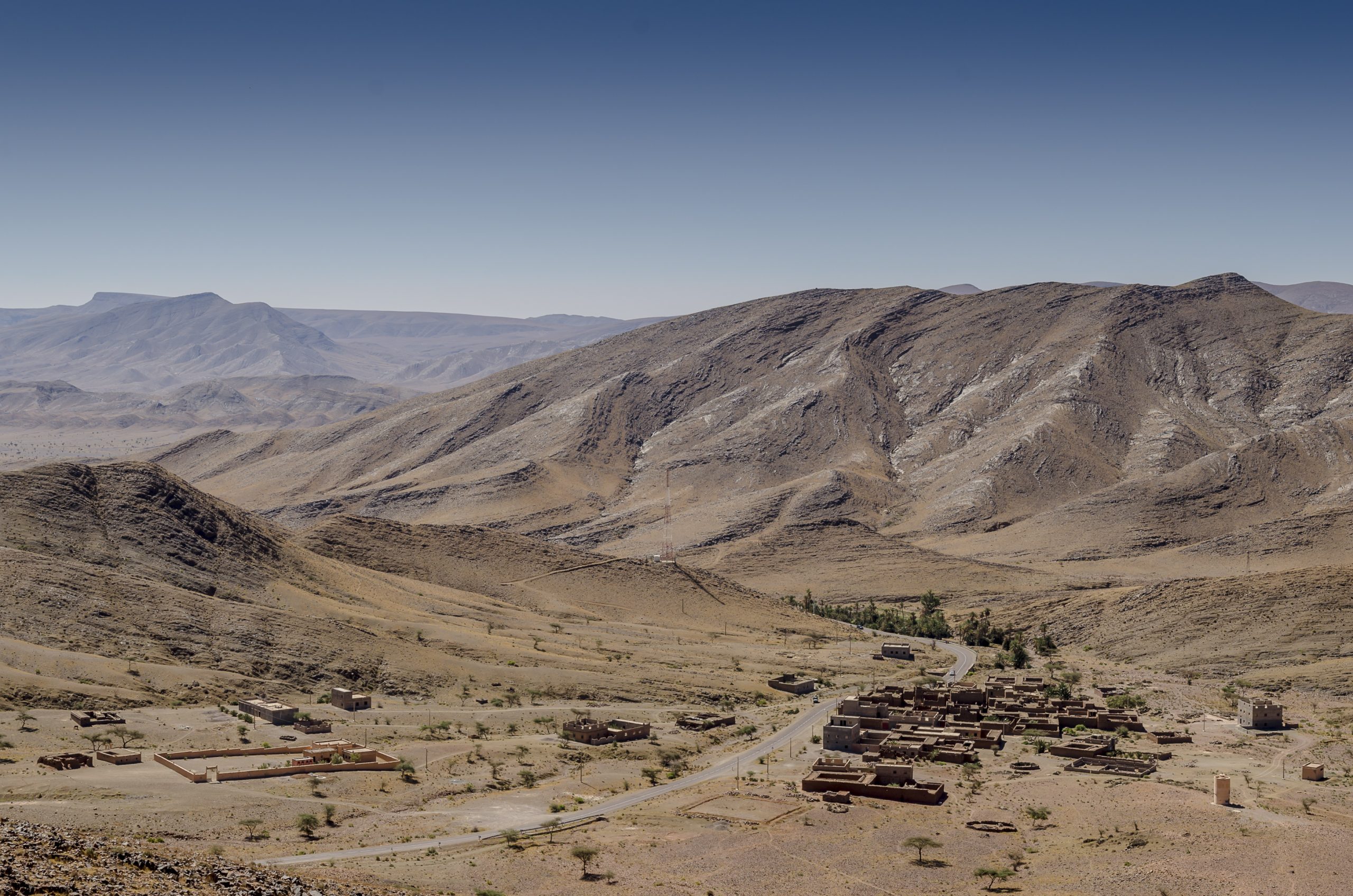
The entire African coast of the Mediterranean basin is a climate zone that is among the most threatened by global warming of the atmosphere. © Carlos Garriga/ We Are Water Foundation
The threat of desertification
The new project is also being carried out in the Guercif province, in the Eastern Region, an area located on the southern border of the Eastern Rif, a geographical and cultural area that is suffering from the decrease in rainfall that climate change has clearly increased in the last decade. The entire African coast of the Mediterranean basin is a climate zone that is among the most threatened by global warming of the atmosphere.
A recent study by the Massachusetts Institute of Technology (MIT) has confirmed the projections already made in the AR5 report of the Intergovernmental Panel on Climate Change (IPCC) in 2014: the northern coast of Africa will be increasingly dry because of declining rainfall. The study by the MIT forecasts a 40% drop in rainfall during the winter rainy season in some coastal areas of the Mediterranean, such as Northwest Africa and the Middle East, where this projection has already become evident in recent years.
These climate forecasts represent a serious setback to Morocco’s efforts in the fight against poverty, which could be extended to Algeria, Tunisia, Mauritania and Libya, countries that make up the Magreb. In early January, the government of Morocco launched a national program to provide drinking water and irrigation until 2027, with a budget of 11.8 billion dollars. Similar initiatives are being carried out in Algeria for 2030 and in Tunisia, where water recycling for agriculture takes on a special role. These countries are struggling with a pandemic that is impoverishing them and slowing progress towards the attainment of access to water and sanitation for their entire population. Investments in education about the water cycle and the benefits of sanitation and hygiene are the best help for those who have made living with very little their main survival tool. Their feeling of solidarity will do the rest.


